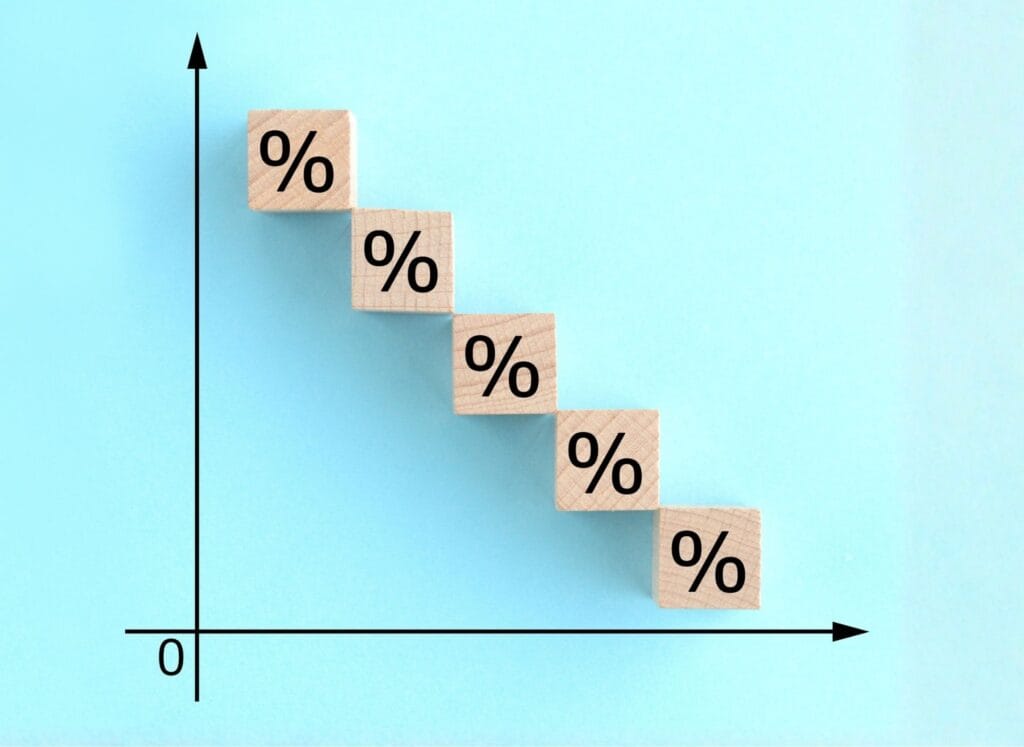With the Bank of England cutting the base rate to 4.00% in August 2025 and UK inflation still running above target, many savers are waking up to a problem: the money they hold in the bank is slowly losing value.
While the bank remains one of the safest places from a security standpoint, it is not necessarily safe for preserving purchasing power. In this context, more investors are weighing property or stocks as alternatives for protecting and growing their capital.
This article examines the three main options: cash in the bank, property or stocks, so you can decide where your money is safest in 2025.
The problem with cash in 2025
On the surface, cash feels safe. Your capital in a UK-regulated bank is protected up to £85,000 under the Financial Services Compensation Scheme. However, “safe” in 2025 is not the same as “secure in value.”
Average easy-access savings rates are now in the low to mid-2% range (Moneyfacts), while CPI inflation was 3.6% in the 12 months to June 2025 (ONS). That means the real return on your savings is negative. You can find out more about how inflation impacts your savings by reading our interest rate cut blog, here.
In simple terms, £10,000 in a 2.5% savings account loses around £110 in real value over a year when inflation is at 3.6%. Over five years, this compounds into a much bigger erosion of purchasing power.
Why interest rates have fallen
The August 2025 base rate cut to 4.00% was intended to stimulate the economy after growth slowed in the first half of the year. Lower rates reduce borrowing costs for households and businesses but inevitably push savings rates down.
While that is good news for mortgage borrowers, it puts savers in a difficult position. To maintain or grow wealth, investors increasingly need to look beyond the bank toward property or stocks.
Stocks: potential and volatility
Stocks are the more liquid of the two main investment assets. You can buy and sell shares or funds on the London Stock Exchange within market hours, and transaction costs are low compared to property.
Equities also have a long-term record of delivering strong total returns, through both price growth and dividends, outpacing inflation over time. The FTSE 100 has seen periods of significant growth even after downturns, and diversified portfolios can smooth volatility.
However, volatility is the key word. Stock values can swing significantly over short periods, and if you need to sell during a downturn, you may crystallise losses. For this reason, equities are best suited to investors with a multi-year horizon who can ride out market cycles.
Property: a tangible, income-generating asset
Property offers something neither cash nor stocks can match: it is a physical, tangible asset. That tangibility, combined with its ability to produce rental income, makes it an attractive hedge against inflation.
In July 2025, Halifax reported UK average house prices rising 2.4% year-on-year, with the average price at £298,237. Provisional Land Registry data showed a similar mid-2025 average of around £269,000.
Unlike stocks, property can be leveraged, meaning you can use borrowed money to buy an asset that grows in value and generates income. While leverage can amplify losses in downturns, in a stable or rising market it can significantly increase returns.
Comparing property or stocks in the 2025 environment
Returns: Historically, stocks have provided higher long-term returns than property, but with more short-term volatility. Property returns are steadier and boosted by rental yield, which can be linked to inflation.
Liquidity: Stocks win on liquidity, you can access your funds quickly. Property sales can take months and incur high costs.
Costs and taxes: Property has higher ongoing costs (maintenance, insurance, letting fees) and taxes such as stamp duty. Stocks incur lower transaction costs and can be held in tax-efficient wrappers like ISAs and SIPPs.
Risk: Property risks include tenant default, local market downturns, and regulatory changes. Stocks are exposed to market-wide shocks and global economic conditions.
Why property may be safer for many investors in 2025
The combination of lower interest rates and inflation above target makes cash unattractive for long-term wealth preservation. While stocks can deliver strong growth, their volatility means they may not suit all investors.
Property offers a middle ground: slower-moving valuations, tangible ownership, rental income, and a partial inflation hedge. Even if house price growth is modest, rental income provides a steady cash flow, something bank savings cannot match.
For investors seeking to protect purchasing power without the stress of market swings, property often emerges as the safer choice.
Practical allocation strategies
- Income-focused investor: Allocate 60% to income-generating property, 30% to dividend-paying stocks, 10% to cash for liquidity.
- Growth-focused investor: Hold 50% in property (including leveraged investments) and 50% in diversified equity funds.
- Balanced investor: Split evenly between property and stocks, keeping a small cash reserve for emergencies.
Key checklist before deciding property or stocks
- Define your time horizon and liquidity needs.
- Compare net returns after tax, fees, and inflation.
- Stress test for worst-case scenarios, falling rents, higher interest rates, or stock market downturns.
- Consider indirect property investments like REITs for liquidity.
- Rebalance at least annually to maintain your chosen allocation.
Conclusion: property or stocks
In 2025, there is no completely risk-free place for your money. The bank is secure in terms of capital protection but fails to protect against inflation. Stocks can grow wealth but expose you to market swings. Property provides income, stability, and inflation protection, making it the safer choice for many.
Whether you choose property or stocks, or a blend, the key is to act deliberately and align your portfolio with your long-term financial goals.
Next steps: Contact us for a tailored investment allocation plan that suits your objectives.









